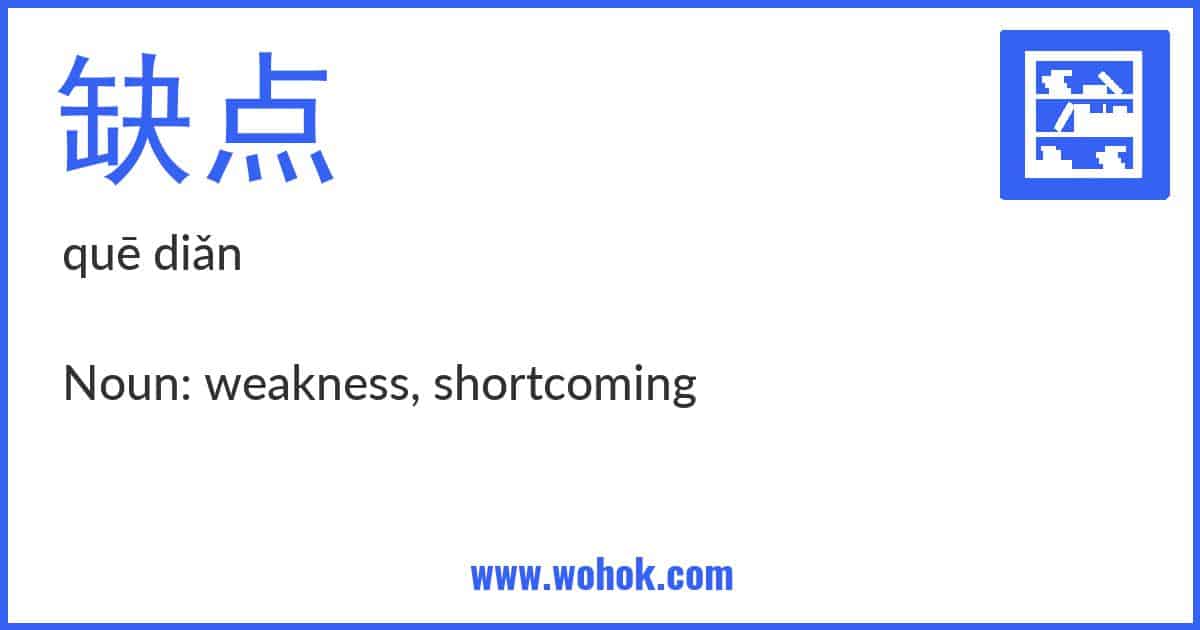The Chinese word 缺点 means “shortcoming” or “defect”. It is commonly used to describe flaws or imperfections in a person, object, or situation. For example, if someone is discussing a product they purchased and they mention that it has a few 缺点, they are saying that the product has some shortcomings or drawbacks. Similarly, if someone is discussing a job candidate and they mention their 缺点, they are talking about the candidate’s weaknesses or areas where they need improvement.
Translation
Noun: weakness, shortcoming
Pronunciation
Example Sentences
| Chinese | Pinyin | Engish |
|---|---|---|
| 这个产品的缺点是价格太高 | zhège chǎnpǐn de quēdiǎn shì jiàgé tài gāo | The downside of this product is that it’s too expensive |
| 她的缺点是太过于自负 | tā de quēdiǎn shì tài guòyú zìfù | Her flaw is that she’s too arrogant |
| 这个地方的缺点是治安不太好 | zhège dìfāng de quēdiǎn shì zhì’ān bù tài hǎo | The downside of this place is that the public security is not very good |
| 这个方案的缺点是实施起来比较困难 | zhège fāng’àn de quēdiǎn shì shíshī qǐlái bǐjiào kùnnán | The downside of this plan is that it’s relatively difficult to implement |
| 他的缺点是缺乏耐心 | tā de quēdiǎn shì quēfá nàixīn | His flaw is that he lacks patience |
| 这个公司的缺点是管理混乱 | zhège gōngsī de quēdiǎn shì guǎnlǐ hùnluàn | The downside of this company is that the management is chaotic |
| 这个电影的缺点是剧情过于平淡 | zhège diànyǐng de quēdiǎn shì jùqíng guòyú píndàn | The downside of this movie is that the plot is too bland |
HSK
缺点 is part of HSK Level 4 in HSK 2.0. In the newer HSK 3.0 it is part of HSK Level 3.
Learning Card


